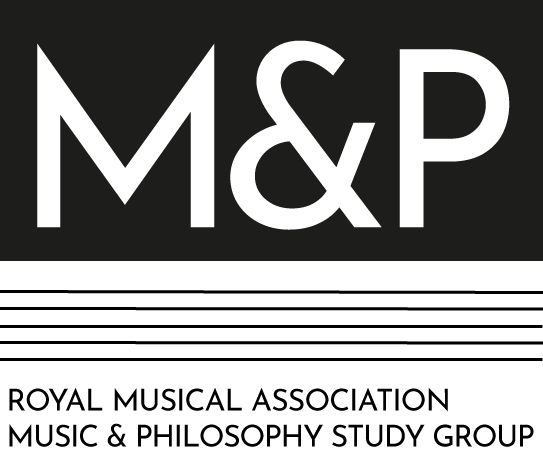Call for Papers
Ideology in Words and Music
2nd Conference of the Word and Music Association Forum
November 8-10, 2012, Stockholm University, Sweden
Deadline for abstract submissions: March 1st 2012
The Word and Music Association Forum (WMAF) offers emerging scholars — mainly graduate students and researchers and post docs — opportunities to present papers and to establish a network of scholars who share an interest in word and music studies. WMAF was founded in 2009 under the auspices of the International Association for Word and
Music Studies (WMA). The central event of the Forum is a biennial conference, held in alternating years with the WMA international conferences.
The second biennial conference of the WMA Forum “Ideology in Words and Music” will be held at Stockholm university, Sweden, November 8-10, 2012. We are pleased to welcome prof. Lawrence Kramer (Fordham University, New York) and ass. Prof. Jørgen Bruhn (Linnæus University, Växjö) as the conference’s two keynote speakers.
This conference will attend to the intersection between words, music and ideology. How might musico-literary intermediality be construed as a site where ideology is both established and questioned? How have combinations of words and music historically interacted with ideological systems? How do contemporary encounters between verbal and musical media reflect ideological issues? Which ideological presuppositions underlie current intermedial research?
The term ideology – from Greek idea (form, pattern) and logos (reason, discourse) – has been conceived of in an abundance of ways throughout history. The critical debate on ideology is perhaps most often associated with the Marxist tradition of thought, which in turn has given rise to several generative perspectives on ideology. In Althusser’s work, for example, it is the agency that shapes human subjects by interpellating them, and in Adorno’s writings, it is frequently found at the nexus of discourse and music. From other theoretical vantage points, however, Thomas Kuhn has described ideology as the commitments, beliefs, and values shared by scientists within alternating scientific paradigms, while Clifford Geertz has stressed the metaphorical nature of ideology by introducing cultural semiotics into the study of historical societal processes.
This conference aims to address these and other conceptions of ideology in relation to musico-literary interplay, and thus opens up a vast field of questions. Case studies, papers with a historical approach, and papers dealing with theoretical or methodological issues
are invited. Possible topics include but are not limited to:
– historical instances of musico-literary works and practices that reproduce or are engendered by ideological systems, ranging from the problematic status of literature and music in Plato’s ideal state to the modern phenomena of national anthems and protest songs, and beyond. Totalitarian societies are of obvious relevance in this context: in situations where certain ideologies and certain concepts of literature and music have been prescribed, how have writers and composers dealt with these conditions in their works?
– all theoretical questions connected to the conference topic such as the question of whether the intermedial combination of verbal and musical elements as such has any ideological implications. How do the specific definitions of ideology affect its relation to words and music?
– music and language in their respective relations to ideology. Stereotypically, music has been taken to epitomize an autonomous art beyond ideology, whereas language has been thought of as more obviously enmeshed in history, culture, and politics. In recent decades, however, such binaries have also been subject to sustained critique. How do artefacts involving combinations of words and music reflect these different tendencies?
– the ideological foundations of academic research. How have existing or changing academic structures reconfigured the field’s ideological foundations in a subject area as obviously interdisciplinary as word and music studies? Has a focus on intermedial typologies and
structuralistic frameworks obstructed the visibility of ideological aspects of musico-verbal relations?
While the general relationship between art and ideology may give rise to a wide variety of questions, the scope of this conference will be limited to issues where ideological thought or critiques intersect with intermedial phenomena involving both words and music.
The Word and Music Workshop
In addition to papers related to the principal topic, the conference will also include a workshop of work-in-progress presentations, as well as the possibility to discuss questions within the field of word and music studies. Participants of the workshop will be required to
submit their discussion manuscripts of maximum 10 pages approximately one month before the conference and to read the other participants’ contributions. Workshop presentations will be restricted to 10 minutes and are meant to focus mainly on open questions the participant in question wants to discuss. The discussions will be approximately 30 minutes long. The keynote speakers will participate in the workshop discussions and all workshop participants will be expected to engage actively.
Please submit abstracts of ca. 300 words plus a brief biographical statement (ca. 50 words) to wmaf2012@mondo.su.se by March 1, 2012. Please note that in order to allow adequate time for discussion papers must not exceed 20 minutes presentation. You should also indicate whether your paper is intended for the conference topic or for the Word and Music Workshop.
The Organizing Committee:
Axel Englund (Stockholm)
Hannah Hinz (Stockholm)
Markus Huss (Stockholm)
Beate Schirrmacher (Stockholm)
Mario Dunkel (Dortmund)
Emily Petermann (Göttingen)



